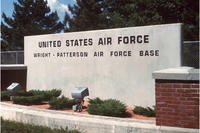A new legal analysis released by the Defense Department finds "the landscape … has changed" since a 1981 Supreme Court case ruled that women could be excluded from registering for the draft.
The gradual opening of combat positions to female troops, culminating in Defense Secretary Ash Carter's Dec. 3 announcement that all military jobs would open to women, changes the factual context of the male-only draft, the two-page analysis found.
Currently, only male United States residents between ages 18 and 26 are required to register for the military draft. The 1981 case Rostker v. Goldberg found the male-only draft to be constitutional because women were excluded from combat by law and policy.
"The Court deferred to Congress' explanation that 'if mobilization were to be ordered in a wartime scenario, the primary manpower need would be for combat replacements,'" the analysis states. " … The landscape on the assignment of women has changed since Rostker was decided."
The opening of combat jobs to women began with the repeal of statutes barring women from being assigned to aircraft and ships engaged in combat, the memo states. It continued in 2013 when the Defense Department rescinded the 1994 Direct Ground Combat Definition and Assignment Rule, mandating that all jobs open to female troops, barring any exceptions granted by the Secretary of Defense.
Carter's recent announcement confirmed that there would be no exceptions to the integration mandate. He acknowledged that his decision to open all jobs to women could result in female troops being required to register for the draft.
"It is an issue that's out there. Unfortunately it's subject to litigation," he said during his briefing.
That case, National Coalition for Men vs. the Selective Service System, is due to be considered by the U.S. Court of Appeals for the 9th Circuit in California on Tuesday.
In October, Army Secretary John McHugh said "true and pure equality" would require that women register for the draft following gender integration in combat jobs.
"If we find ourselves as a military writ large where men and women have equal opportunity, as I believe we should [open selective service to women]," he said.
The Pentagon's analysis did allow, however, for the possibility that other rationales not considered by the Supreme Court might serve to limit the draft requirement to men. The memo did not describe what those rationales might be.
"The [DoD] will consult with the Department of Justice as appropriate regarding these issues," the analysis concludes.
--Hope Hodge Seck can be reached at hope.seck@military.com. Follow her on Twitter at @HopeSeck.






























